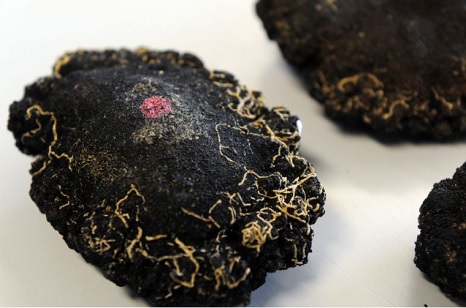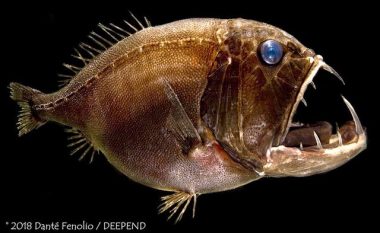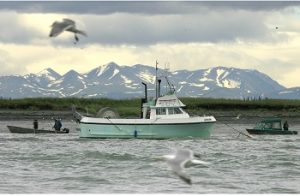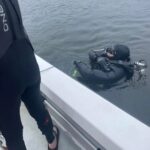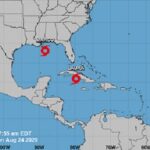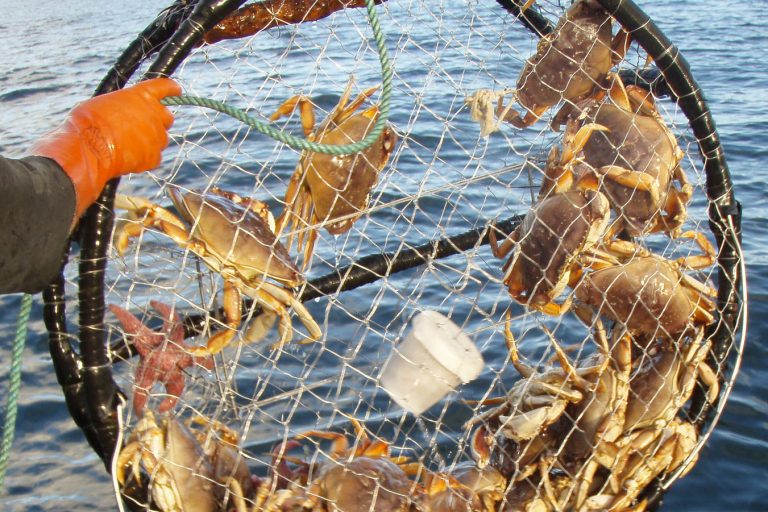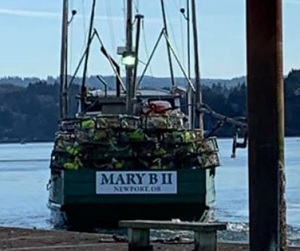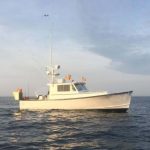Tag Archives: United Nations
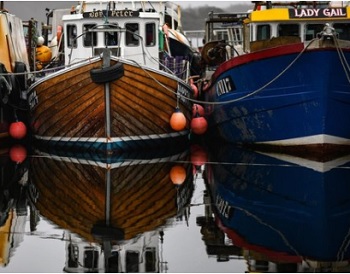
Climate change: Scotland’s fishing fleet doesn’t deserve to be turned into a water-borne bogeyman by enviros
In fact, official government advice is for people to eat at least two portions of fish per week, one of them oily, and the Scottish government has a dietary goal of increasing fish consumption among the population. Meanwhile, the Scottish fishing industry has a lower carbon footprint than most other forms of food production, such as meat and even many vegetables. Yet with the United Nations’ Cop26 climate change conference due to be held in Glasgow this November, presenting many opportunities for cheap headlines, skippers, crews and coastal communities have been singled out by environmental NGOs for their perceived lack of progress towards achieving net-zero carbon emissions. >click to read< 07:48
‘I’m truly upset’: CA sport fishermen say proposed emissions standards will put them out of business – >click to read<
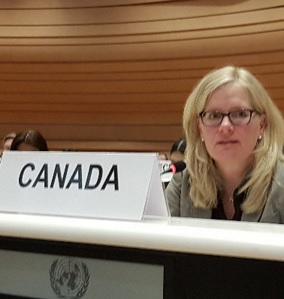
Canada’s lobster dispute goes international – UN committee seeks answers from Canada over racism, violence against Mi’kmaw fishers
The chair for the UN Committee on the Elimination of Racial Discrimination (CERD) asked Leslie Norton, Canada’s permanent representative to the United Nations in Geneva, Switzerland to explain what Canada has done to Investigate alleged acts of racism, violence and vandalism against Mi’kmaw fishers and supporters, Investigate alleged lack of response by officers with the RCMP and the Department of Fisheries and Oceans to protect Mi’kmaw people,,, The UN committee has given Norton until July 14 to provide a response. Sipekne’katik Chief Mike Sack said he was happy to see the letter from the UN committee. “It shows some hope that Canada has to answer for their actions or their lack of actions,” >click to read< 12:38
Canada’s lobster dispute goes international -Indigenous fishers say they have treaty and Supreme Court rights to fish where and when they want,,, Commercial fishers say the season is regulated and limited in order to conserve the resource,,, >click to read<

Zero chance of the UN intervening with peacekeepers to monitor Sipekne’katik lobster fishery
Queens University political scientist John McGarry said Chief Mike Sack might have “good political reasons” for making the request, but it won’t happen. “I’ll just put it bluntly: there is zero chance of the UN intervening with peacekeepers,” he said. McGarry said that’s due to several reasons, including that Canada would have to agree to the request and then invite peacekeepers in. “The Canadian government is not going to consent to that because that would mean it was incapable itself of looking after this issue, and that would be a profoundly embarrassing abdication of its responsibilities as a government, so it’s not going to agree to it,” he said. Failing that, the UN Security Council would have to pass,,, >click to read< 07:20
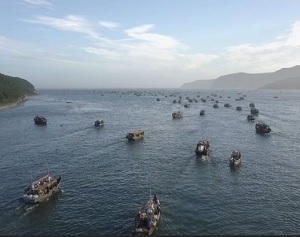
Heard of this Secret Armada? In the Russian exclusive economic zone, a secret war is going on.
Every year thousands of makeshift North Korean boats invade the waters of Japan and Russia to strip their seas of fish. In a desperate bid for hard cash, and to feed his people, North Korea leader Kim Jong Un is forcing his fleets further out to sea to illegally fish, breaking United Nations sanctions. It’s risky business with voyages often resulting in death for the North Korean fisherman. Far out to sea in the Russian exclusive economic zone, a secret war is going on. The Russian coastguard is stepping up its operations against the North Korean armada. >click to read< 14:21

The Reason Renewables Can’t Power Modern Civilization Is Because They Were Never Meant To
Over the last decade, journalists have held up Germany’s renewables energy transition, the Energiewende, as an environmental model for the world. “Many poor countries, once intent on building coal-fired power plants to bring electricity to their people, are discussing whether they might leapfrog the fossil age and build clean grids from the outset,” thanks to the Energiewende, wrote a New York Times reporter in 2014. With Germany as inspiration, the United Nations and World Bank poured billions into renewables like wind, solar, and hydro in developing nations like Kenya. But then, last year, Germany was forced to acknowledge that it had to delay its phase-out of coal, and would not meet its 2020 greenhouse gas reduction commitments. It announced plans to bulldoze an ancient church and forest in order to get at the coal underneath it. >click to read< 21:49
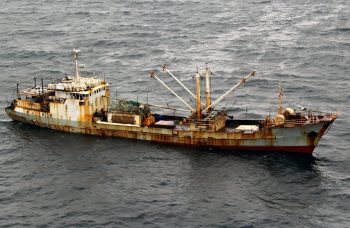
The United Nations Is Considering Banning High-Seas Fishing
Far offshore are the high seas—waters beyond any country’s jurisdiction and the focus of a contentious debate. The high seas, which cover nearly two-thirds of the ocean’s surface, have recently seen an increase in fishing and other activities, such as deep-sea mining. To protect the biodiversity of this vast environment, delegates attending a meeting currently underway in New York are negotiating for a new international treaty, an addition to the United Nations Convention on the Law of the Sea. Depending on the outcome of this and subsequent meetings, the United Nations could move to regulate—or even ban—fishing and other activities on the high seas. >click to read<17:55
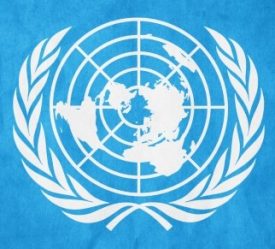
The UN Starts a Conservation Treaty for the High Seas
The nations of the world have launched a historic two-year process to create the first-ever international treaty to protect life in the high seas. Covering nearly half of the planet, the high seas are international waters where no country has jurisdiction. These waters, which reach depths of nearly seven miles, are filled with life, from valuable fish to plankton. They help generate the oxygen we breathe and regulate the global climate. “This is a once-in-a-generation opportunity to get ocean governance that puts conservation and sustainable use first,” says Liz Karan, senior manager for the high seas program at the Pew Charitable Trusts. click here to read the story 16:19
United Nations negotiations begin today in New York to rescue ocean life
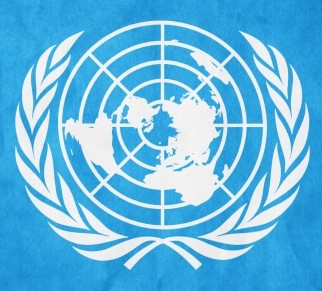 It took a decade to get to the negotiating table, and it could easily take another to finish the job, but UN talks in New York to safeguard life in the high seas finally begin in earnest Monday. The stakes could hardly be higher, experts and diplomats agree. Oceans produce half the oxygen we breathe, regulate the weather, and provide humanity’s single largest source of protein. Without them, Earth would be just another barren rock in the Universe. And yet humanity has harvested marine species upon which we depend to the edge of extinction, and used the seas as a collective garbage dump. Climate change, meanwhile, has altered the ocean’s basic chemistry in ways that raise the specter of a mass extinction that scientists say is already underway. Read the rest here 10:24
It took a decade to get to the negotiating table, and it could easily take another to finish the job, but UN talks in New York to safeguard life in the high seas finally begin in earnest Monday. The stakes could hardly be higher, experts and diplomats agree. Oceans produce half the oxygen we breathe, regulate the weather, and provide humanity’s single largest source of protein. Without them, Earth would be just another barren rock in the Universe. And yet humanity has harvested marine species upon which we depend to the edge of extinction, and used the seas as a collective garbage dump. Climate change, meanwhile, has altered the ocean’s basic chemistry in ways that raise the specter of a mass extinction that scientists say is already underway. Read the rest here 10:24
Russia re-submits claim on vast Arctic seabed at UN
 Russia has submitted its bid for vast territories in the Arctic to the United Nations, the Foreign Ministry said Tuesday. The ministry said in a statement that Russia is claiming 1.2 million square kilometres of Arctic sea shelf extending more than 350 nautical miles or about 650 kilometres from the shore. Russia was the first to submit its claim in 2002, but the UN sent it back for lack of evidence. In 2007, Moscow staked a symbolic claim to the Arctic seabed by dropping a canister containing the Russian flag on the ocean floor from a submarine at the North Pole. Read the rest here 13:42
Russia has submitted its bid for vast territories in the Arctic to the United Nations, the Foreign Ministry said Tuesday. The ministry said in a statement that Russia is claiming 1.2 million square kilometres of Arctic sea shelf extending more than 350 nautical miles or about 650 kilometres from the shore. Russia was the first to submit its claim in 2002, but the UN sent it back for lack of evidence. In 2007, Moscow staked a symbolic claim to the Arctic seabed by dropping a canister containing the Russian flag on the ocean floor from a submarine at the North Pole. Read the rest here 13:42
Canada tangles up fisheries talks to score foreign-policy point
![]() This situation began to change about five years ago when many governments and international agencies, began to recognize that small-scale fisheries are not a problem to be solved, but rather a solution to the pressing problems facing our oceans. Most important, this turning point was signalled by a major initiative led by the food agency of the United Nations, the Rome-based Food and Agriculture Organization (FAO) — a set of international guidelines to support small-scale fisheries. Read more here 15:08
This situation began to change about five years ago when many governments and international agencies, began to recognize that small-scale fisheries are not a problem to be solved, but rather a solution to the pressing problems facing our oceans. Most important, this turning point was signalled by a major initiative led by the food agency of the United Nations, the Rome-based Food and Agriculture Organization (FAO) — a set of international guidelines to support small-scale fisheries. Read more here 15:08
Canada Missing Big Opportunity to Support its Small-Scale Fisheries, Arthur Bull
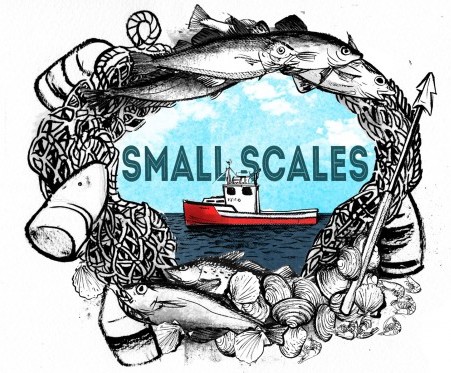 The vast majority of fisheries in the world are small scale fisheries. These are the community-based, small boat, family-owned fisheries that make up a whopping 90% of the world’s fisheries, fisheries that land more than 2/3 of all the fish caught world-wide, and provide the basic protein needs to literally billions of people. Read more here 14:15
The vast majority of fisheries in the world are small scale fisheries. These are the community-based, small boat, family-owned fisheries that make up a whopping 90% of the world’s fisheries, fisheries that land more than 2/3 of all the fish caught world-wide, and provide the basic protein needs to literally billions of people. Read more here 14:15






